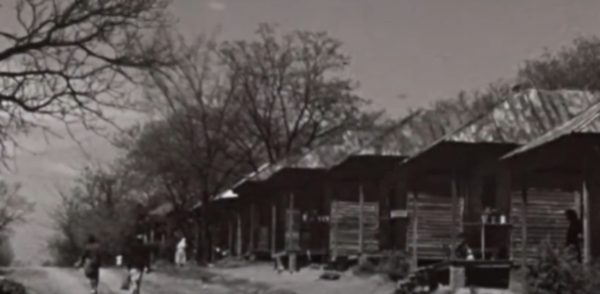Back in the 1960s, 50 Black families were forcibly displaced from their homes in an area of Athens, Georgia, known as Linnentown. The descendants of those families are now seeking reparations and want to testify before Congress.
“All hope was lost with the family separation, loss of property, and loss of community,” Hattie Thomas Whitehead, president and community outreach coordinator for the Linnentown Project told the Atlanta Journal-Constitution. “It destroyed my family and a lot more. My parents never became homeowners again.”

At the height of the Jim Crow era, Linnentown existed as a sustainable Black community. The neighborhood included several businesses and over 60 percent of residents owned their land, Whitehead said.
But when the land was seized, Linnentown was no more. On the land dorms were built in the 1960s for the University of Georgia. Under the federal government’s urban renewal program, cities and colleges were empowered to seize property in what was called “slum clearance.” The University and the Athens city government requisitioned lots and burned homes to the ground, The Intercept reported.
The University of Georgia, often lauded as the first state-supported university in the U.S, is now embroiled in a conflict with an organization alleging the university system destroyed its community to expand the Athens campus.
The Linnentown Project has list of demands, which, according the website, include:
- An official acknowledgement recognizing the existence of Linnentown and accepting responsibility for the injustices committed by the City of Athens and the University of Georgia;
- A large onsite physical memorial called a “Wall of Recognition” Formal participatory budgeting powers enabling the Linnentown Justice and Memory Committee to make recommendations for allocations in the city budget for economic development and infrastructural support of local impoverished communities;
- A local Center on Slavery, Race, and Racial Justice co-funded by the University System of Georgia;
- Formal recommendations to the Georgia General Assembly to create an Authority on Recognition and Redress to determine the appropriate forms of reparations for Black communities harmed by slavery, Jim Crow segregation, and urban renewal across the State of Georgia.
Even though the physical neighborhood has been destroyed, the Linnentown community is alive and ready for action. In the words of Linnentown resident Geneva Johnson Blasingame, “We’re not gone. We’re still here.”
Whitehead’s father, a laborer, had built his home with the help of other men in town. Afterall, there were plumbers, electricians and general contractors present who could supply him with tools and other resources.
“We had highly skilled adult workers, nurses, a pro baseball player,” said Whitehead. “We had everything in the community to be sustainable.”
Yet in 1962, the city of Athens claimed eminent domain over Linnentown, purchasing 22 acres of land. The property was sold to the Board of Regents. The homes of Black residents were razed and in their place, three dormitories and parking lots were built for University of Georgia students.
The families living in these properties moved away–often to public housing–as the money they made from the sale of their property was not enough to cover the cost of another home.
Today, Whitehead along with five former residents of Linnentown have organized to seek compensation and reparations from the university system.
While the University of Georgia has not broached the subject of compensation, they have offered to include Linnentown in an Athens Oral History Archives, which are housed at the University of Georgia Libraries.
Local government officials, however, have recognized that the displacement of so many people was traumatic. In February, the Athens-Clarke County Commission unanimously decided to acknowledge that Linnentown was destroyed as a result of institutionalized racism. In addition, the Commission established the Linnentown Justice and Memory Committee, a group that is currently developing a Black history center.
In addition, the Commission also introduced a $15 minimum wage to support the economic development of the Black community in Athens.
Despite the support of local government officials, no monetary reparations are available to former Linnentown residents. A gratuities clause in Georgia’s constitution prohibits local government officials from making cash payments to residents and nonprofits.
The organization has lobbied state legislators such as U.S. Sens. Jon Ossoff and Raphael Warnock to request help in changing the clause.
“It is heartbreaking because a whole community — that nurtured, loved, and supported you — was erased,” Whitehead told the AJC.




